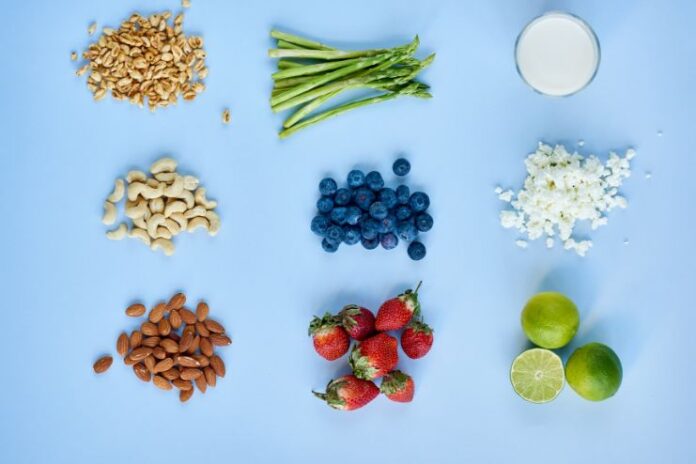While you might be diligently consuming wholesome foods like fresh produce, whole grains, and quality proteins, combining them incorrectly could potentially negate their health benefits. Surprising, right? Even the most nutritious ingredients can transform into digestive nightmares when paired inappropriately.
Many people remain oblivious to the fact that certain food combinations can trigger internal chaos. From a health standpoint, the way different foods interact in your digestive system is just as crucial as the individual foods themselves. Sadly, this vital knowledge often goes unnoticed or is poorly understood.
The consequences? These range from minor issues like bloating and sluggish digestion to more serious problems including food poisoning-like symptoms, nutrient malabsorption, and even long-term toxicity. Over time, these unsuitable combinations might compromise your immune function and harm your digestive health.
This comprehensive guide will reveal 15 surprisingly harmful food combinations that frequently go unnoticed, helping you make informed dietary choices and protect your digestive wellness and overall health.
Not all foods complement each other well. While some combinations might seem innocent or even beneficial, they could be silently impacting your digestive system and overall wellbeing. Let’s explore what combinations to avoid.
Read More: Why You Should Chew Your Food 30 Times (According to Science)
Understanding Hazardous Food Combinations
- Hazardous food combinations can harm our digestive system and lead to problems like bloating, gas, and diarrhea.
- Some food combinations can be dangerous because they are high in added sugars, saturated fats, and other additives.
- Eating highly processed foods can also lead to digestive issues and other health problems.
- It’s essential to be mindful of the food combinations we eat and to make choices that support our digestive health and overall well-being.
15 Food Combinations You Should Never Eat Together
Not all foods complement each other well. While some combinations might seem innocent or even beneficial, they could be silently impacting your digestive system and overall wellbeing. Let’s explore what combinations to avoid:
1. Pizza and Soda

Pizza and soda might seem like a classic combination, but this pairing is far from ideal for your health and well-being. There are multiple compelling reasons why this duo should be avoided. Pizza, particularly commercial varieties, tends to be loaded with unhealthy fats, with a significant portion being saturated fat.
Research has consistently shown that diets high in saturated fats can substantially increase your risk of cardiovascular diseases and other health complications.
Furthermore, the high sodium content in pizza can lead to fluid retention in your body, potentially causing temporary weight fluctuations and uncomfortable bloating. This effect can be particularly pronounced when combined with carbonated beverages.
When consumed together, pizza and soda create a nutritionally imbalanced meal that can wreak havoc on your body’s systems. Both items are rich in simple carbohydrates, which can trigger a rapid spike in blood sugar levels.
This spike often leads to increased cravings and hunger shortly after consumption. If this combination becomes a regular part of your diet, it could contribute to unwanted weight gain over time and potentially lead to more serious health issues.
2. Dalia and Juice
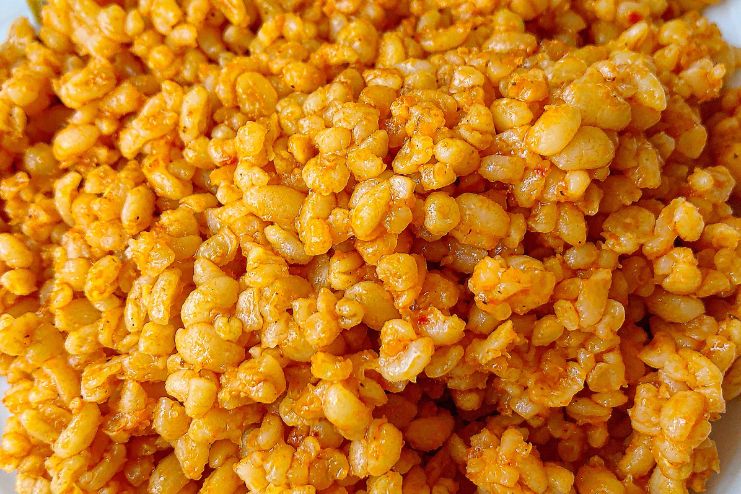
Most of us believe that eating a bowl of dalia(broken wheat) and one glass of orange juice for breakfast is a wise and healthful decision, but we couldn’t be more mistaken! This food combination negatively impacts your blood sugar levels since it causes an immediate spike that usually ends abruptly after a while. Your health is not well-served by such sharp changes in blood sugar.
Read More: Are Artificial Food Dyes Causing Hyperactivity in Children?
3. Fried Meat and Eggs
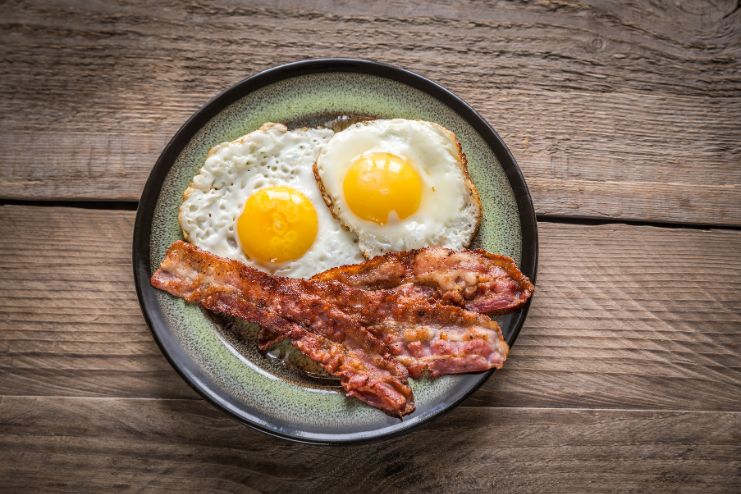
The combination of fried meat and eggs, while a popular breakfast choice, can be particularly challenging for your digestive system to process efficiently. This protein-heavy pairing, especially when both components are fried, creates a substantial workload for your digestive organs.
The high protein content, coupled with the added fats from frying, can lead to slower digestion and potential discomfort. To maintain better digestive health, consider substituting either component with fresh fruits or vegetables, which can provide essential nutrients while being easier to digest.
4. Jam with White Bread

While it may be a convenient breakfast option when you’re pressed for time, combining white bread with jam is nutritionally inadequate. This pairing primarily consists of simple carbohydrates, lacking essential proteins and healthy fats, setting an unfavorable tone for your daily nutritional intake.
The sugar content in jam provides a quick energy boost that typically lasts no more than an hour, after which you’re likely to experience hunger pangs. White bread, produced using highly refined flour, is notably deficient in fiber content, offering minimal nutritional value. Upon digestion, it rapidly converts to sugar without providing sustained satiety.
This combination might serve well in specific scenarios, such as pre-workout fuel or when you need rapid-acting, mild energy. However, for regular consumption, it falls short as a balanced food pairing.
5. Burgers and Fries
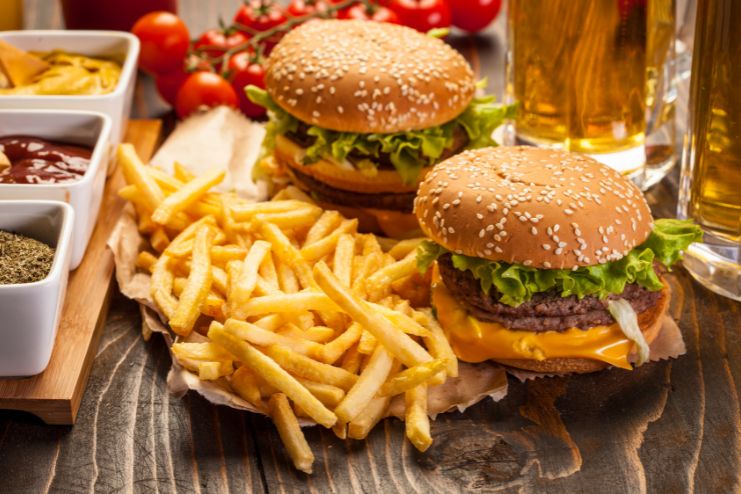
While burgers and fries are commonly served together at most restaurants, this popular pairing isn’t as complementary as many believe. The combination of multiple deep-fried components can significantly impact your blood sugar regulation.
When consumed together, these foods can cause a rapid drop in blood glucose levels, leading to feelings of fatigue and drowsiness shortly after eating.
Read More: The Benefits of Eating Fermented Rice (A Forgotten Superfood)
6. Low-Fat Dressing and Salad
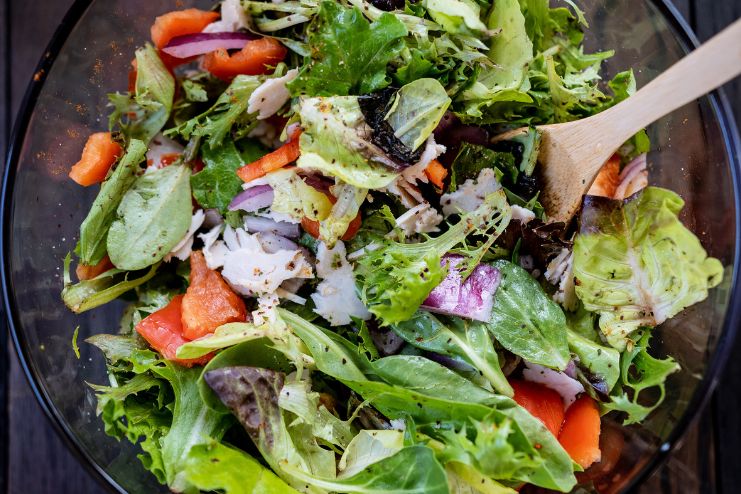
While a salad dressed with low-fat dressing might seem like an ideal weight-loss choice, Ayurvedic principles suggest this combination could be detrimental to digestive health and overall well-being.
Nutrition experts caution against fat-free dressings and similar products, as eliminating fats entirely can trigger intense cravings later. This often results in overcompensation through excessive eating when hunger strikes.
Furthermore, many essential nutrients present in salad vegetables, including beta-carotene, vitamin E, and omega-3 fatty acids, require some dietary fat for proper absorption by the body.
7. Yogurt and Fruits
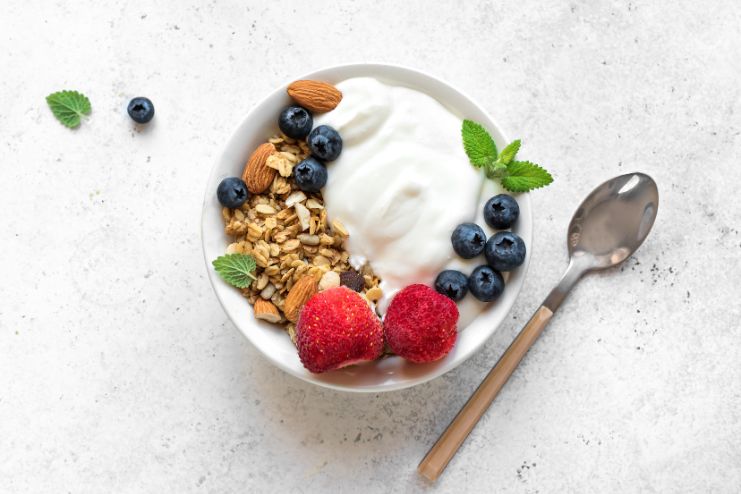
The revelation that combining fruits with yogurt isn’t as healthy as previously believed may come as a disappointment to many health enthusiasts. When fruit acids interact with the proteins present in yogurt, they can create compounds that potentially disrupt digestive processes and damage beneficial gut fibers. This combination may also trigger adverse food reactions in some individuals.
Read More: Purple Vegetables – Are They the Ultimate Anti-Aging Superfoods?
8. Bananas and Milk
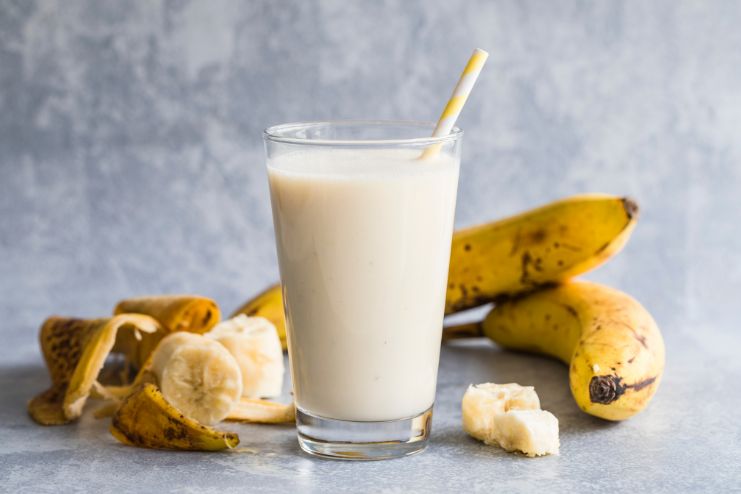
Traditional Ayurvedic wisdom suggests that consuming banana with milk creates an unfavorable combination for several health reasons. Health practitioners warn that this pairing can impair digestive functions by generating harmful substances that compromise both digestive health and overall wellness.
Additionally, this combination has been associated with respiratory issues, potentially leading to sinus problems, common colds, and various allergic reactions that could impact your health negatively.
For those monitoring their weight, this particular food pairing might not align with your health goals. While scientific research hasn’t definitively proven these claims, it may be prudent to minimize consumption of this combination as a precautionary measure.
9. Mint and Aerated Drinks

Viral videos showcasing the explosive reaction between mint and carbonated beverages have been circulating widely across social media platforms. Now, imagine this intense chemical reaction occurring within your digestive system – a truly concerning scenario!
This combination can trigger severe gastrointestinal discomfort, leading to excessive gas formation and uncomfortable bloating that can cause significant distress.
10. Milk with Citrus Fruits

While milk and orange juice frequently appear together during breakfast, this seemingly innocent pairing can actually be detrimental to your digestive health.
Ancient Ayurvedic principles specifically caution against combining milk with acidic fruits like oranges.
This combination is problematic for multiple reasons. The high acidity of citrus fruits can disrupt your stomach’s delicate enzymatic balance, potentially leading to significant digestive issues.
Read More: The Surprising Benefits of Eating Bitter Foods (And How to Enjoy Them)
Furthermore, milk’s high lactose content requires specific enzymes called lactase for proper breakdown into simpler sugars – glucose and galactose. Without adequate lactase enzyme production, consuming milk can result in uncomfortable symptoms including indigestion, excessive gas, and bloating.
11. Cereal and Juice
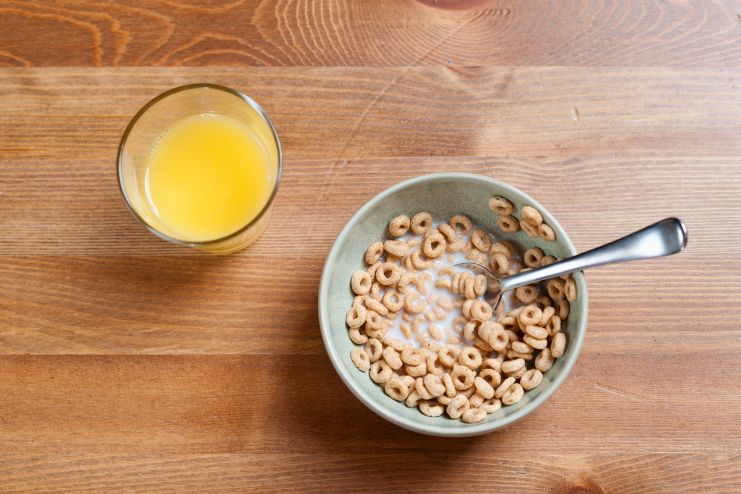
Contrary to popular belief, starting your day with a combination of fruit juice and breakfast cereal might not provide the optimal energy boost you’re seeking. Scientific research has shown that the natural acids present in fruit juices, particularly citrus varieties like orange juice, can significantly interfere with the enzymatic processes responsible for carbohydrate breakdown in your digestive system.
12. Meat and Potatoes
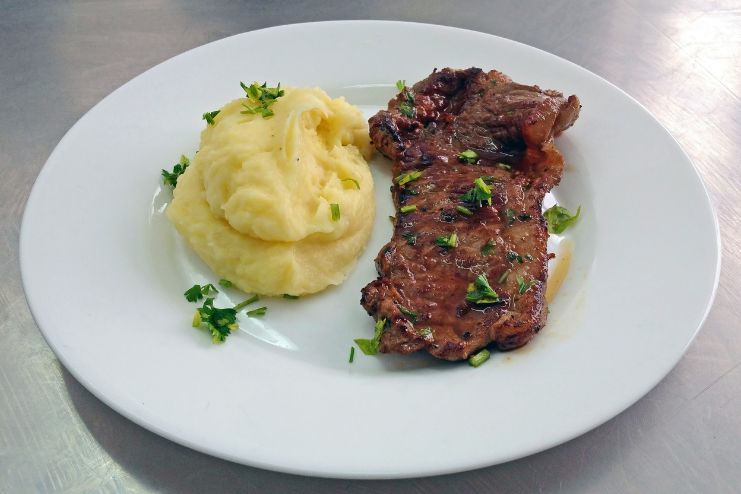
The classic Sunday roast might evoke warm memories of family gatherings, with its aromatic grilled vegetables, perfectly charred meat, creamy mashed potatoes, and rich gravy. However, consuming these foods together could potentially impact your digestive wellness negatively.
The main culprit behind this digestive challenge is the meal’s insufficient fiber content, which plays a crucial role in proper food processing. Additionally, the concentrated amounts of proteins and fats in such combinations can place significant strain on your digestive system.
To maintain optimal digestion, consider either reducing portion sizes of one component or spacing out your consumption into smaller, more manageable meals throughout the day.
Read More: Sirtfoods: Can These Special Foods Turn on Your “Youth Genes”?
13. Shrimp and Lamb
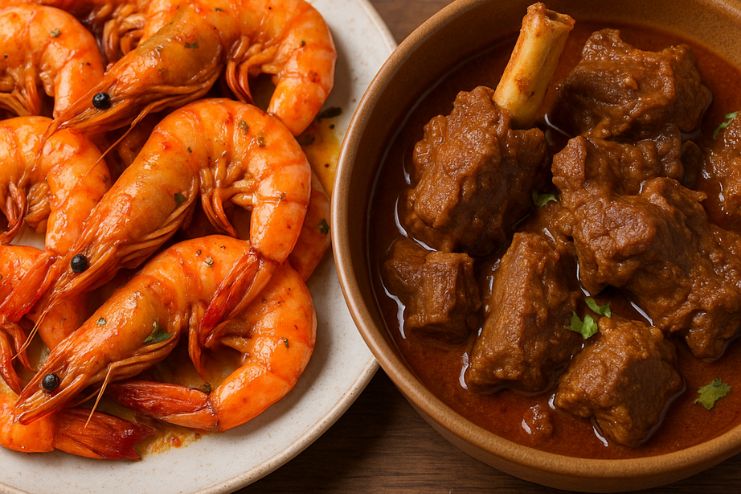
At social gatherings or buffet-style events, many individuals find themselves tempted to sample multiple varieties of meat simultaneously, despite rarely preparing such combinations at home. This indulgent behavior, while momentarily satisfying, could potentially lead to significant digestive discomfort and gastrointestinal issues.
14. Pasta with Cheese and Tomato Sauce
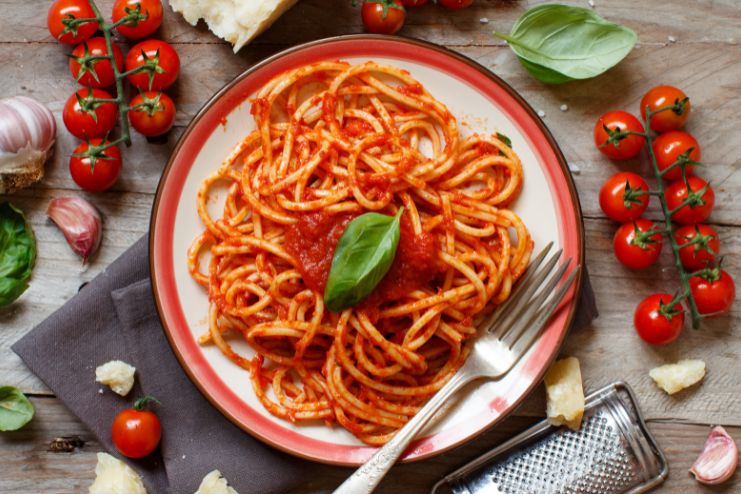
Traditional pasta dishes, while comforting, present a nutritional challenge. The carbohydrate-rich pasta rapidly converts to glucose, while the acidic tomato sauce can potentially impact blood sugar levels. The meal’s protein deficiency further compromises its nutritional balance.
The predominant carbohydrate content in pasta with tomato sauce creates a temporary feeling of fullness. However, this satisfaction is often short-lived, potentially leading to excessive snacking or overeating during subsequent meals.
15. Beer paired with Roasted Nuts
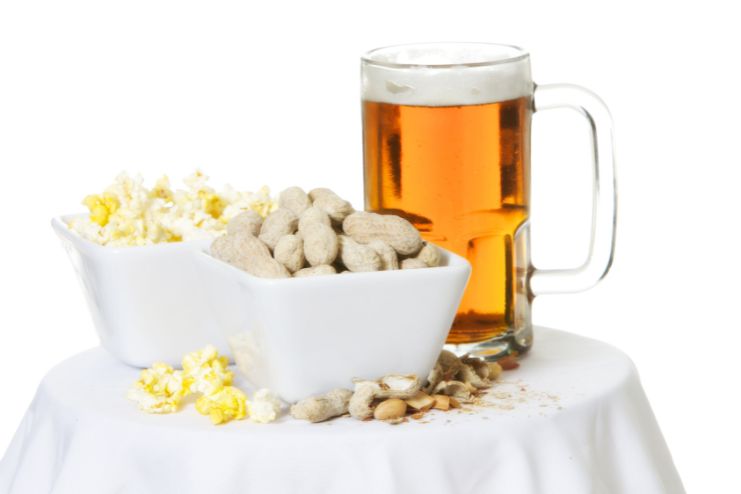
If you’ve ever visited a bar or pub, you’ve likely noticed that peanuts are a common complementary snack served alongside beer. While this pairing might seem harmless at first glance, it’s important to understand the potential health implications. Beer contains astringent properties that can contribute to dehydration, while roasted nuts typically contain high levels of sodium.
The combination of these two elements creates a problematic cycle, as the saltiness from the nuts triggers increased thirst, potentially leading to increased beer consumption. This, in turn, can worsen the dehydrating effects of the alcohol.
For those who still prefer to enjoy their beer with roasted nuts, it’s crucial to maintain proper hydration by consuming adequate water before, during, and after indulging in this combination.
Read More: Jicama Health Benefits – Why This Crunchy Superfood Deserves a Spot in Your Diet
Conclusion
Healthy eating extends beyond simply choosing nutritious foods; it involves understanding how different foods interact when consumed together. As demonstrated, even nutrient-rich foods can have adverse effects when improperly combined, leading to fatigue, digestive issues, and potential long-term health concerns.
Take a moment to evaluate your current eating habits. Pay closer attention to how you feel after meals. Consider simplifying your food combinations and avoiding problematic pairings as part of mindful eating practices. Small changes in how you combine foods can significantly impact your body’s response to meals.
Your digestive system and overall health will benefit from these thoughtful choices. Transform mindful eating into your new superpower.
In this Article















